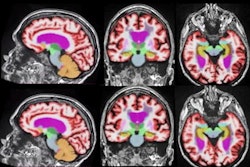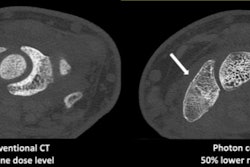Dear AuntMinnie Member,
Adoption of artificial intelligence (AI) as a clinical tool is proceeding apace in radiology. But it's one thing to use an AI algorithm in your radiology department or imaging center and another thing entirely to roll AI out across a large healthcare enterprise.
Fortunately, it has been done, and one of the folks who has done it is Dr. Nina Kottler, associate chief medical officer for clinical AI at Radiology Partners. Kottler shared her experiences in implementing AI at scale at our Spring 2022 Virtual Conference (AMVC 2022) last week, and Senior Editor Erik L. Ridley covered the presentation for a story in our Artificial Intelligence Community.
You can also view the entire presentation, including a live Q&A session, in our webinar video.
We've also posted the other presentations from AMVC 2022:
- Update on economics in AI for women's health, by Dr. Melissa Chen.
- Artificial intelligence for breast cancer screening, by Dr. Manisha Bahl.
- Extending the value of radiology for breast health to women's health, by Kevin Harris (Partner Content).
- Artificial intelligence for breast ultrasound, by Dr. Linda Moy.
- The radiology reading room of the future, by Dr. Eliot Siegel.
- Augmented reality: Getting real in radiology, by Dr. Jesse Courtier.
- AI that works in breast imaging clinical practice, by Ralph Highnam, PhD (Partner Content).
Thanks again to everyone who attended AMVC 2022 and participated in the discussion.
MRI of vaping
Prior to the COVID-19 pandemic, one of the most serious problems in thoracic imaging was the rise of a mysterious clinical condition related to vaping. Most often, CT was used to investigate these cases. But in a new study, researchers from Switzerland used MRI to assess the effects of both electronic and traditional cigarettes.
In other news in MRI, researchers from Johns Hopkins University used an AI algorithm to analyze cardiac MR images and predict the risk a patient will experience sudden cardiac death over the next decade.
Also, MRI and CT could be overused for investigating patients who present to the emergency room suffering from dizziness, according to researchers from the University of Minnesota.
Get these stories and more in our MRI Community.
AI of CTC screening
Finally, be sure to visit our CT Community for an article describing how AI was used to analyze CT colonography (CTC) studies to determine whether individuals might be at risk of type 2 diabetes mellitus.



















